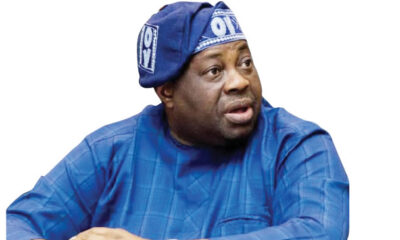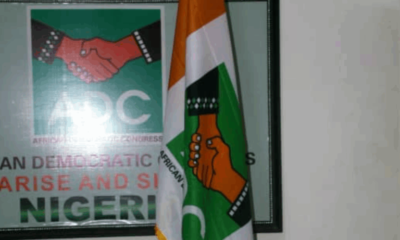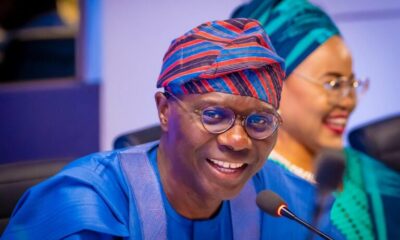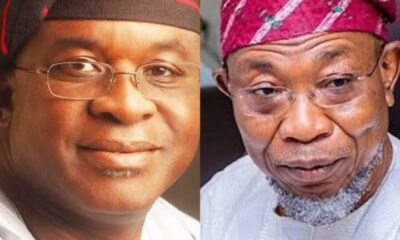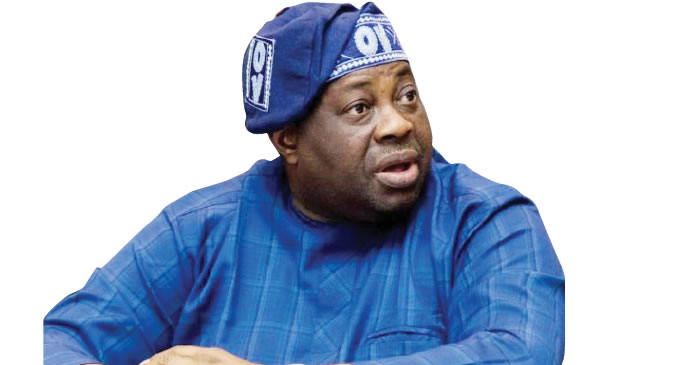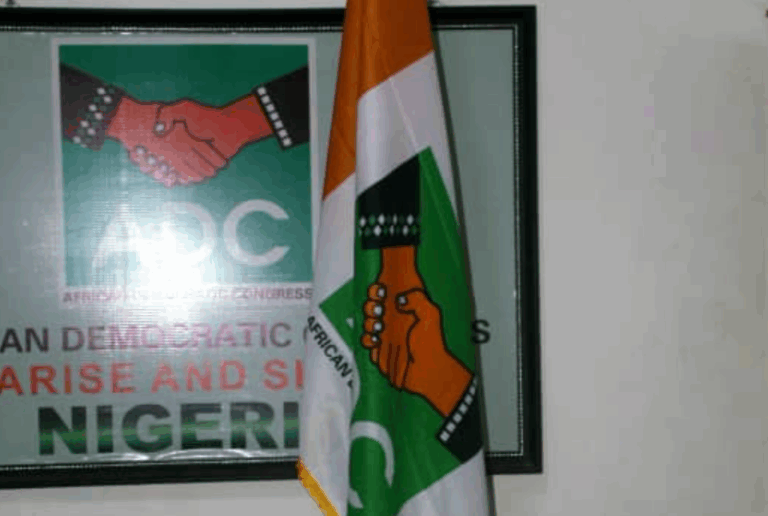Who should corporate responsibility and sustainability lessons be taken from? Some companies are still unclear about the concept but latch onto the sustainability mantra anyway because it has become a marketing buzzword for business. Or a company through whose creed and deeds, over the many decades it has been around, people can see corporate responsibility and sustainability lived (first) and preached (subsequently)?
If the above set of questions constituted a question in an examination hall, it would be one of the easiest of questions to answer. Not one person would fail it. Outside the examination hall, the answer to this question that seems as easy and simple as the question of 2 + 2 may not be as easy and simple. It may be complicated by all the cleverly arranged noise and claims projected at people to make it difficult for them to see and accept the obvious.
So, it is incumbent on people who know and care enough (like this writer), to keep stating and restating the obvious. This is in the hope that doing so would help others to take full cognizance of the obvious and not allow themselves to be bamboozled by images without substance and rhetoric without pedigree.
The concept of corporate responsibility and sustainability is not about the clever or manipulative use of marketing buzzwords by corporate citizens. It is about impact, net positive impact, in the lives of real, not imagined, people through the deliberate and well-planned activities of socially-responsible corporate citizens.
Even if history is no longer taught in most schools in Nigeria, the records are there. The records show that Nigeria has been blessed to have stood by her, at all times, a corporate citizen which understands the concept of corporate responsibility and sustainability.
This corporate citizen has been standing by Nigeria before the country’s founding, through its amalgamation, Independence, and all the conflicts and crises Nigeria has gone through and still faces. Today, corporate citizen still stands by Nigeria.
First Bank of Nigeria Limited, a lender of unmatched pedigree, a bank with a history of unparalleled support to Nigeria and Nigerians (right from the colonial era to date, even serving as Nigeria’s central bank at some stage of our national development), has been a corporate citizen like no other.
A brand that has backed innumerable groundbreaking projects across Nigeria and beyond, FirstBank has demonstrated that real impact that can be seen and felt by all, and not mere marketing buzzwords, is the real measure of an institution’s understanding of corporate responsibility and sustainability.
It is incontrovertible that whichever way corporate responsibility and sustainability is understood or defined, FirstBank is sure to tick all the boxes. Just name every parameter for assessing a company’s efforts in corporate responsibility and sustainability and match each against what FirstBank has been doing. Is there any parameter that FirstBank has not surpassed?
FirstBank has been living corporate responsibility and sustainability for most, if not all, of its existence as a going concern. Knowing it cannot do it alone, the bank has also devoted resources to efforts that will enable it to preach or pass the message so other corporate citizens, groups, and individuals will emulate it.
One platform the bank has used effectively for this purpose is its Corporate Responsibility and Sustainability (CR&S) Week. The CR&S Week is a full working week that the FirstBank Group, in-country and across the world where it operates, dedicates to the promotion, execution, and celebration of social responsibility initiatives.
The Sustainability Week also includes a huge kindness campaign to reorient citizens towards the right values and reignite acts of kindness in society. It is only one of the many ways FirstBank is living true to its brand promise to always put customers first.
And Sustainability Week seeks to invite others (individuals and corporate citizens) to follow the bank’s example and begin to intentionally create a positive impact in their immediate communities.
From the inaugural edition in 2017, where the theme was “Promoting Kindness: Putting You First”, the Sustainability Week has helped to reinforce FirstBank’s role as a nation-builder that is driving sustainable development across the communities where it operates. It was an opportunity for the bank to encourage others (individuals and corporate citizens) to follow in its steps, even if all they can afford to take are small steps.
Taking small steps may have informed the choice of theme for the second edition of the Sustainability Week in 2018: “Touching Lives: You First”. The bank sought to debunk the notion that touching lives in meaningful ways and making an impact on society require big-ticket projects, whilst emphasizing the power in the little things people do and the small steps they take.
After all, is it not little drops of water that make a mighty ocean, as the saying goes? And does the journey of a thousand miles not begin with a (small) step, as another saying puts it?
Just take a look at SPARK (Start Performing Acts of Random Kindness), a values-based initiative that raises consciousness by promoting kindness to one another in society, which the bank started during the inaugural Sustainability Week in 2017.
Aimed at reinforcing FirstBank’s corporate culture of encouraging giving and volunteering among its staff and the larger society, its magnitude today and the many kind initiatives it has sparked off across the country could not have been imagined when the seed was planted five years ago. Incalculable manhours and financial resources from FirstBank staff and partners have been contributed willingly.
Children in orphanages, internally displaced persons (IDPs) in various IDP camps, widows, and other underprivileged or vulnerable groups have been visited and their challenges alleviated if not totally eliminated. Scores of career counseling sessions with secondary school pupils across Nigeria have also been organized as part of the Sustainability Week, which has been the first of its kind in Nigeria’s financial services industry.
In 2019, the third edition of the Sustainability Week with the theme: “Ripples of Kindness: Putting You First” enunciated the values (or pillars) of the SPARK initiative to include Compassion, Civility, and Charity. FirstBank believes that these values and the acts of kindness that flow as a result of embracing the values are critical to promoting and building peaceful co-existence and prosperity in society.
Among the key highlights of the 2019 Sustainability Week was “Nice Comments Day” which was a day set aside to foster words of encouragement, support, and kindness to people around one, regardless of one’s familiarity or close ties, in recognition of the instrumental role kind words play in lighting up people’s day and bringing out the best in them.
Another highlight was the SPARK School Engagement that promoted the SPARK initiative in schools, with the objective of embedding the values of SPARK amongst school children at a young age so the values become part of, and habitual to, them as they develop into adulthood.
Due to the COVID-19 pandemic and government-imposed lockdown, the year 2020 witnessed no edition of the Sustainability Week. Any attempt to stage the kinds of activities and events that usually accompany the Sustainability Week would have been counterproductive, spreading infections and possibly deaths instead of the kindness and joy that the Sustainability Week has become synonymous with.
However, FirstBank’s avowed commitment to corporate responsibility and sustainability would not allow it to fold its hands and just watch while COVID-19 and its debilitating effects tried to make living and learning difficult for most Nigerians.
Working virtually or remotely and, where it could not do otherwise, physically but in strict adherence to COVID-19 safety protocols, FirstBank executed several initiatives meant to ameliorate the very difficult situation in Nigeria then.
The bank contributed to efforts to provide palliatives to vulnerable Nigerians, announced a moratorium on repayment of loans, set up a special loan fund for businesses run by women, established another for school proprietors in collaboration with a state government, and drove an e-learning initiative that sought to move one million school children to a safe online learning platform so their educational progress would not be set back due to COVID-19 restrictions, government-ordered lockdown and the closure of educational institutions for the greater part of 2020
“Kindness: A Way of Life” was the theme for the fourth edition of the Sustainability Week held in 2021. Highlights of activities of the 2021 Sustainability Week, designed to entrench a culture of kindness, included a practical-oriented training webinar for staff to embed a culture of kindness in the bank by driving understanding of how kindness (or the lack of it) can impact the workplace, the marketplace and the communities in which staff live and work.
Another important feature of the Sustainability Week was the “Kind Comments Days” that ran all week to inspire a consciousness of kind choice of words and consideration for others. There was also a dedicated program in secondary schools designed to institutionalize SPARK by using school SPARK champions (including students and teachers) alongside other partners such as Junior Achievement Nigeria (JAN) and Lagos State government to inculcate the SPARK values in school children.
One other feature was the ground-breaking ceremony for the Lagos State government’s OCAAT (One Community At A Time) initiative to provide the Primary Health Care Centre at the Ijedodo community in Alimosho LGA. Set up as an initiative to improve the health and welfare of the members of various communities in Lagos State, FirstBank partnered with the government on the project as part of its contribution to global efforts to meet some specific Sustainable Development Goals (SDGs).
There were also webinars: a general webinar with the sub-theme: “Education: Does Kindness have a Role?”; and a millennial webinar with the sub-theme: “Making the Cyber World a Kinder Place” which sought to proffer solutions to the question of how people could become kinder on social media platforms.
All the past editions of FirstBank Sustainability Week highlight the longstanding and relentless commitment of FirstBank not only to continue to live but also to preach the message of corporate responsibility and sustainability.
Given its unmatched pedigree in corporate responsibility and sustainability, FirstBank has earned the right to address all other corporate organizations as well as individuals and groups on matters of sustainability. The bank has earned its right to the people’s audience.
It is against this backdrop that FirstBank’s forthcoming 2022 Corporate Responsibility and Sustainability Week should be welcomed by other banks and corporate citizens, irrespective of industry, as an opportunity to come together and take lessons from Nigeria’s foremost corporate citizen with regard to corporate responsibility and sustainability.
FirstBank does not consider itself too big to take lessons from other corporate citizens in areas where they have distinguished themselves. So other corporate citizens should not feel too big to take lessons from FirstBank in this area where the bank stands highly distinguished.
Or can anyone claim not to know that if the concept of corporate responsibility and sustainability were to be represented by one corporate citizen per country on a world map where countries are denoted by their foremost corporate entities, it is unarguable that FirstBank would be the company eminently representing Nigeria on that map?
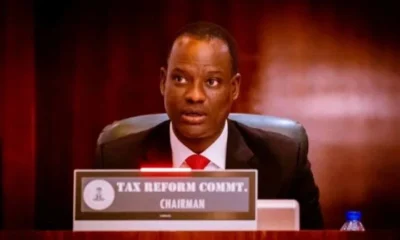
 BIG STORY5 days ago
BIG STORY5 days ago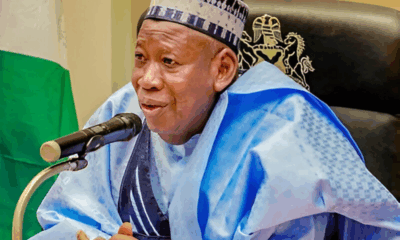
 BIG STORY5 days ago
BIG STORY5 days ago
 BIG STORY1 day ago
BIG STORY1 day ago
 BIG STORY5 days ago
BIG STORY5 days ago
 BIG STORY1 day ago
BIG STORY1 day ago
 BIG STORY1 day ago
BIG STORY1 day ago
 BIG STORY2 days ago
BIG STORY2 days ago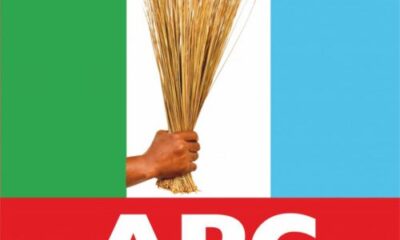
 BIG STORY2 days ago
BIG STORY2 days ago







